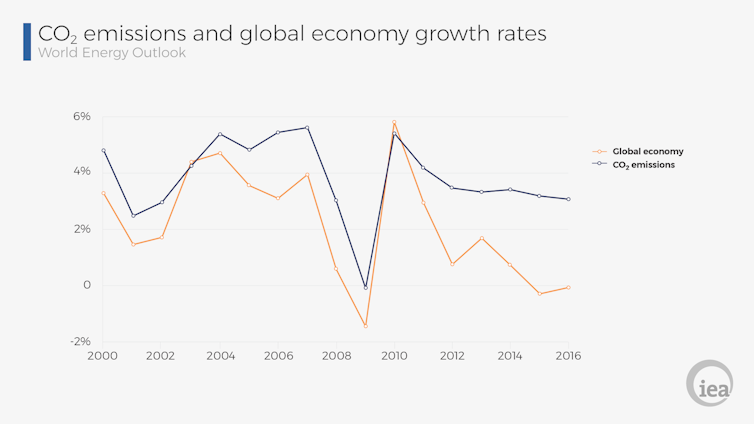At the COP24 conference in Poland, countries are aiming to finalise the implementation plan for the 2015 Paris Agreement. The task has extra gravity in the wake of the recent IPCC report declaring that we have just 12 years to take the action needed to limit global warming to that infamous 1.5ᵒC target. Although the conference itself is open to selected state representatives only, many see the week as an opportunity to influence and define the climate action agenda for the coming year, with protests planned outside the conference halls. A crucial role of environmental activists is to shift the public discourse around climate change and to put pressure on state representatives to act boldly. COP24 offers a rare platform on which to drive a step change in the position of governments on climate change. However, many environmental movements in Europe are not offering the critical analysis and radical narratives needed to achieve a halt to climate change. Read more: Extinction Rebellion: I'm an academic embracing direct action to stop climate change
 Economic growth and carbon emissions are closely linked. International Energy Agency
Practically, what this means is that as long as economic growth continues to expand rapidly and indefinitely, so too will the quantity of CO₂ in the atmosphere and the associated environmental and social impacts.
To address climate change, therefore, we must address the root cause of this planetary ailment: the ideology of growth first, growth always. By moving away from growth-oriented societies in Europe and other advanced economies, towards ones that prioritise environmental and social health, we stand the slimmest chance of solving our climate crisis, while still allowing the poorest economies globally to meet their economic needs.
Economic growth and carbon emissions are closely linked. International Energy Agency
Practically, what this means is that as long as economic growth continues to expand rapidly and indefinitely, so too will the quantity of CO₂ in the atmosphere and the associated environmental and social impacts.
To address climate change, therefore, we must address the root cause of this planetary ailment: the ideology of growth first, growth always. By moving away from growth-oriented societies in Europe and other advanced economies, towards ones that prioritise environmental and social health, we stand the slimmest chance of solving our climate crisis, while still allowing the poorest economies globally to meet their economic needs.
Von Christiane Kliemann Während die Staatsoberhäupter noch das Abschlusspapier der Pariser UN-Klimakonferenz als "wichtigen Schritt für die Menschheit" feierten, hatten kritischere Stimmen den Vertrag bereits als "Schwindel", "episches Versagen" und "Handelsabkommen" verurteilt. Damit weisen sie auf die Diskrepanz hin zwischen der Verpflichtung, "den Anstieg der globalen Durschschnittstemperat...
Camila Moreno, expert on "green" energy in Brazil, gives some demonstrative examples of so called green and clean energy projects and their impact in the Global South. Her input is part of the panel A worldwide energy revolution? which took place at the Degrowth Conference in Leipzig in September 2014. Would you like to continue on the topic? Discussions and actions for Climate Justice and D...
Während meiner Zeit an der Universität wurde ich im Rahmen eines Workshops zum Thema „Resourcenknappheit“ mit folgender Grafik konfrontiert: Die Grafik beschreibt wie Wirtschaft, Gesellschaft und Umwelt voneinander abhängen. Spezieller Augenmerk liegt auf dem Machtverhältnis zwischen den einzelnen Einheiten: Ohne die Gesellschaft kann keine Wirtschaft existieren und ohne die Umwelt kann keine Gesellschaft existieren. Pavan Sukhdev [...]